Do you have what you need to make your garden grow?


Garden Center
Store Hours
Mon-Sat:
6:00am - 10:00pm
Sun:
7:00am - 8:00pm
Curbside:
09:00am - 6:00pm
Location
Popular at Your Garden Center
Summer Popular Garden Supplies and More
Explore June Live Plants
Garden Project Calculators
;Resize=(703,395.44))
Grass Seed Calculator
When you're ready to seed your lawn, our calculator helps you estimate the amount of grass seed you'll need to get the job done.
;Resize=(703,395.44))
Mulch Calculator
Enter your preferred material, the square footage and mulch depth of the coverage space for accurate results.
;Resize=(703,395.44))
Fencing Calculator
We'll calculate the amount of fencing you should purchase based on your property needs.
Shop Outdoor and Garden Brands
Frequently Asked Questions About Gardening
What planting zone am I in?
Check the USDA plant hardiness zone map, as planting zones have shifted over the years. Planting zones with higher numbers can plant earlier in the year. Increase your odds of successful gardening by choosing plants that are meant for your zone.
What does direct sow mean?
If the ground isn't frozen solid and the soil isn't cold, consider planting your flower, fruit, or vegetable seeds directly into your garden. This is called the "direct sow" method. Plant after the threat of frost is gone for the season, as sprouts and seedlings can't weather those conditions. You can also start your seeds indoors if you'd like. Consult your seed envelope for how and when to sow seeds.
Do you carry organic plants and seeds?
Yes, we've got a variety of organic options, including organic fruit seeds and veggie seeds, as well as organic herb and flower seeds that are subject to availability. We also carry the organic fertilizer to feed your plants and the organic soil to plant them in.
Should I harden off my seedlings before planting them outside?
Yes, if you raised plants indoors from seeds in your own plant nursery, harden them before you transplant them. Hardening is the process of getting them used to the great outdoors and rain, sun, and temperature swings. It slows their growth until they're strong and ready to take off during a spring warm front. Hardening also makes your plants more resilient to a sudden cold snap.
Can I strengthen my seedlings before planting them outdoors?
Get your sprouts used to storms and breezy spring days with a fan and keep fungus from growing in damp conditions. Set up an oscillating floor fan on low to mimic the wind. Just the gentlest breeze for several hours a day will do the trick — no need to prep them for a hurricane. The stems and leaves will get used to blowing in the breeze and not snap when a gust comes through. If you don't set up a fan, your seedlings may be more sensitive to strong winds. Try to plant between storms.
Should I use peat moss starters or coir starters?
Seed starters, full of nutrients in convenient pots or pellets, work for new and experienced gardeners alike. You don't have to use these starters if you're planting in soil, but you may want to. Starting seeds in peat pots works best for delicately rooted plants like cucumbers and eggplant, as well as flowers that require an acidic pH. Some people prefer coir starters instead, as they have a neutral pH. Check what type of soil your plants need to help narrow it down, and chat with a garden center associate if you need more info.
Garden Project Ideas

Protect wood from carpenter bees with our guide on sealing surfaces, using traps, and applying safe pest control methods.

Check out our tips on banishing gnats indoors and out using traps, sprays, and moisture control to keep your home pest-free.

Safely remove poison ivy with our guide on protective gear, cutting techniques, and herbicide use for effective eradication.

Maintain a healthy lawn using organic methods like manual weeding, natural herbicides, and proper lawn care practices.

Grow apples successfully with our guide on choosing varieties, planting, pruning, and pest control for a bountiful harvest.

Cultivate thriving grapes with our step-by-step tips on site selection, trellising, pruning, and disease prevention.
The Home Depot Garden Center at Jensen Beach
Celebrate Springtime Gardening
On beautiful spring days, tidy the yard before everything blooms in earnest. Lawn care is often a priority as well. Don't forget to sweep the gazebo and clean out the shed in preparation for spring, too. No matter what outdoor projects you choose to tackle and which plants you need, search for your local plant nursery and find that The Home Depot Jensen Beach Garden Center can help you enjoy your spring activities to the fullest.
Plant Hardiness Zones Explained
The first thing you should know when planting spring flowers, vegetables, and other seeds is your planting zone. Every location in the U.S. and its territories is sorted into blocks by climate. Find your zone on the USDA planting zone map and learn when to plant seeds.
For example, you could plant bell pepper seedlings outdoors in mid-March in Zone 10, but not until the end of May in Zone 4. The plants that'll thrive in your area are in your zone — plus all the zones numbered less than that. In other words, a Zone 9 garden can support plants listed as Zones 1–9. You can plant seeds indoors roughly a month before you can plant them outside, known as direct sow. Always read your seed packet for details. If you start plants later than recommended, it's not ideal, but it should even out as time passes.
Gardening in Your Growing Zone
Your climate is excellent for growing year-round if you've got good soil. Why not think of springtime planting now? With such beautiful weather, you can direct sow many types of seeds. From classics like cucumbers and peppers to spinach and green beans, you have a wide variety of options. Last year's garden might still be growing if there was no reason to put it to bed — especially if it's close to the house or in a greenhouse. In that case, tend it as usual.
Some seeds, like tomatoes, do best when started indoors and aren't recommended as direct sows. Read your seed packets and adjust accordingly for your region. Although the warm temps are excellent for growing, check your soil to make sure it's rich enough and a good match to your plants. Miami limestone and sandy soil will need soil amendments to adjust the texture and pH for a successful garden if you're growing many garden plants. If you go with native plants like muscadines, persimmons, red mulberries, and blueberries, they're already adapted to the soil of southern Florida and will grow just fine.
Start Seeds Indoors
You can save money and gain the satisfaction of growing your garden from seeds by starting them indoors in your own seedling garden. We've got all the seed starter supplies you'll need. For best results, you'll want warming lights or a warming mat to go with your seed tray or plant pots. If you're planting a larger garden, use seed trays — like the ones you see sprouts in at your Jensen Beach Garden Center — to stay organized and plant tiny soil plugs when the time comes. You can also use pots with seed starter mix and potting soil.
Measure your finger to use it as a ruler. In general, you'll plant 3–5 seeds, then press them into the soil to the depth you need with your finger. Mark where you planted the seeds with a toothpick or plant tag. That way, you'll know where your seeds should pop up, and you can be sure they're not weeds. Otherwise, it'll be a surprise when the sprouts push out of the soil.
Sprouts
When your seeds have sprouted but aren't ready to go outside yet, you can still prepare them for outdoor life. These micro-seedlings are fragile — only an inch or so high, with the tiniest seedling leaf or two — but they're resilient. Seedlings don't get all this pampering in nature when they volunteer and grow wherever they please, so they can handle more than you think. However, don't go overboard, as your sprouts are still babies. You can even use an oscillating floor fan on low to mimic the wind and strengthen their stems.
Harden Your Seedlings
When you're hardening your sprouts and gradually introducing them to the outdoors, be flexible. Keep an eye on your baby plants. Bring them inside or move them to a shady spot if they're looking rough. As always, make sure they're watered enough but not drowning. Take wilted plants inside and give them a good drink, making sure they're healthy before setting them outdoors again.
Transplant Young Plants Into Their New Homes
Carefully take your seedling out of the container. A good way to do this is to turn it upside-down or sideways and gently squeeze the plastic to break the seal. If your transplant grew in the garden, dig deeper than you think with your garden trowel and leave plenty of room around the stem. You don't want to damage the root ball. Put the plant in the new hole and make sure it's even with the surrounding soil.
Protect Your Garden With Mulch
Finish it all off with mulch and compost. Mulch controls weeds and keeps your soil from drying out. Compost enriches the soil so your garden can grow even better. It may help foster larger and stronger plants that bear more fruit and flowers. Compost and mulch can be purchased in-store or created at home. The next time you're looking for "mulch near me," stop by the Garden Center to get the right amount.
Greet the Spring
Late winter into early spring is an exciting time in the world of gardening. Prepare to fertilize your lawn, plan your garden and landscaping, and browse The Home Depot nursery to find inspiration on which spring flowers to plant when the weather warms. For those without lawns, consider adding artificial grass or a pellet grill to your outdoor space. Shop for the fertilizer, soil, and seeds you need in the aisles of your Jensen Beach Garden Center, online, or on our mobile app. Let's get growing together.
Nearby Stores
Find Another Store
3030 Se Federal Hwy
Stuart, FL 34994
6.11 mi
Mon-Sat: 6:00am - 11:00pm
Sun: 7:00am - 8:00pm
700 Sw St Lucie W Blvd
Port Saint Lucie, FL 34986
8.09 mi
Mon-Sat: 6:00am - 11:00pm
Sun: 7:00am - 8:00pm
2200 Sw Gatlin Boulevard
Port Saint Lucie, FL 34953
9.05 mi
Mon-Sat: 6:00am - 11:00pm
Sun: 7:00am - 8:00pm
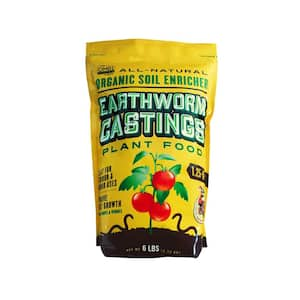
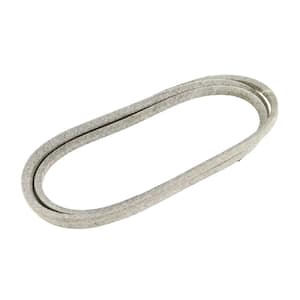
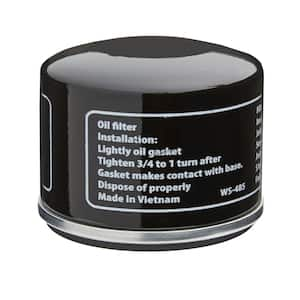
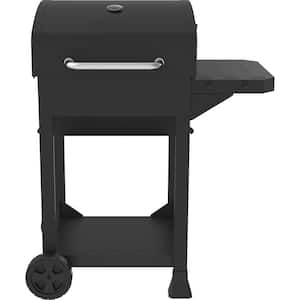
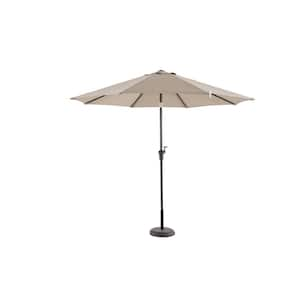
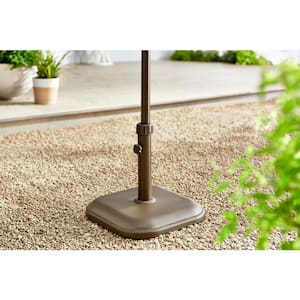
)
/17_514245_S_012_Product%20Image%20(square).jpg?im=Resize=(300,300))
)
)
)
;Resize=(300,300))
/2023_P2_Rain_Barrels_Product%20Image%20(square).jpg?im=Resize=(300,300))
)
)
)
)
;Resize=(300,300))
;Resize=(300,300))
;Resize=(300,300))
)
;Resize=(300,300))
;Resize=(300,300))
)
/12_SOIL_B_0420_Social%20media%20(square).jpg?im=Resize=(300,300))
;Resize=(300,300))
;Resize=(300,300))
;Resize=(300,300))
;Resize=(300,300))
)
;Resize=(300,300))
)
;Resize=(300,300))
;Resize=(300,300))
/18Patio_Camden_Seagrass_5pcSeating_Planters_302468736_DTL3_L_Social%20media%20(square).jpg?im=Resize=(300,300))
;Resize=(300,300))
;Resize=(300,300))
)
;Resize=(300,300))
;Resize=(300,300))
;Resize=(300,300))
;Resize=(300,300))
)
;Resize=(300,300))
)
)
.jpeg?im=Crop,rect=(363.69230769230774,1.2307692307692308,958.7692307692308,958.7692307692308);Resize=(300,300))
;Resize=(300,300))
;Resize=(300,300))
)
)
;Resize=(300,300))
)
)
;Resize=(300,300))
;Resize=(300,300))
)
;Resize=(300,300))
)
)
;Resize=(300,300))
;Resize=(300,300))
)
;Resize=(300,300))
/Capello_Spring_Mum_10in_Social%20media%20(square).jpg?im=Resize=(300,300))
;Resize=(300,300))
)
)
)
)
)
;Resize=(300,300))
)
)
;Resize=(300,300))
;Resize=(300,300))
;Resize=(300,300))
)
)
;Resize=(300,300))






































